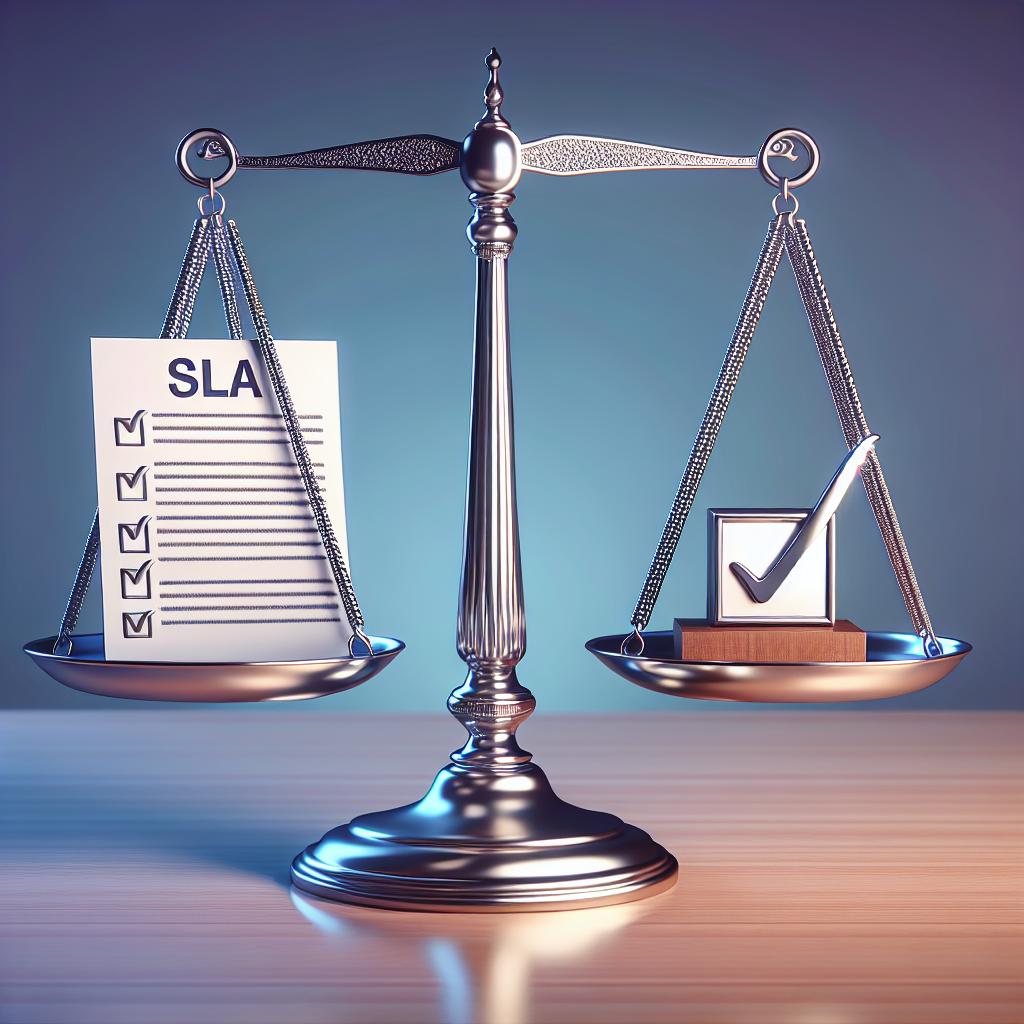Ensuring Compliance and Accountability with Service Level Agreements (SLAs)
Service Level Agreements (SLAs) are essential contracts that outline the expectations and responsibilities of both parties involved in a service agreement. They help to ensure that service providers deliver the agreed-upon level of service to their clients, while also holding them accountable for any shortcomings. Ensuring compliance and accountability with SLAs is crucial for maintaining strong relationships with clients and avoiding costly disputes.
One of the key ways to ensure compliance with SLAs is to clearly define the terms and conditions of the agreement. This includes outlining the specific services that will be provided, the level of performance that is expected, and any penalties or consequences for failing to meet these standards. By clearly defining these expectations upfront, both parties can have a clear understanding of their responsibilities and what is expected of them.
Regular monitoring and reporting are also essential for ensuring compliance with SLAs. Service providers should regularly track their performance against the agreed-upon metrics and provide regular updates to their clients. This not only helps to ensure that the service provider is meeting their obligations, but also allows for any issues or discrepancies to be addressed in a timely manner.
In addition to monitoring performance, it is also important to have a process in place for handling disputes or breaches of the SLA. This may include mechanisms for escalating issues, mediation processes, or even the possibility of terminating the agreement if the service provider consistently fails to meet their obligations. By having a clear process in place for handling disputes, both parties can feel confident that their interests are being protected and that any issues will be addressed fairly and efficiently.
Communication is also key in ensuring compliance with SLAs. Service providers should maintain open lines of communication with their clients, providing regular updates on performance and addressing any concerns or issues that may arise. By keeping the lines of communication open, both parties can work together to address any issues and ensure that the service agreement is being upheld.
Ultimately, ensuring compliance and accountability with SLAs is essential for maintaining strong relationships with clients and ensuring the success of service agreements. By clearly defining expectations, monitoring performance, having processes in place for handling disputes, and maintaining open communication, service providers can ensure that they are meeting their obligations and delivering the level of service that their clients expect.


